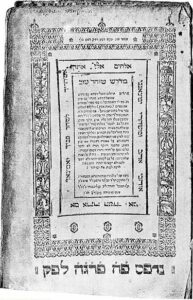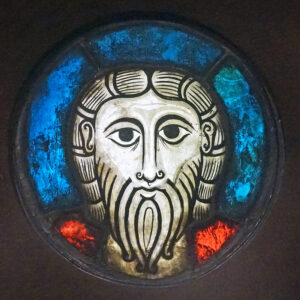We just launched Biblical Fracking with Frank Wade For Individuals and For Groups.

Left: Illustration by Sidney Paget from the original printing of “The Adventure of Silver Blaze” in The Strand Magazine.
In the story “The Adventure of Silver Blaze” by Arthur Conan Doyle, Sherlock Holmes is able to discern who stole a racehorse by considering what did not happen on the night of the theft. Specifically, the fact that a dog does not bark when someone breaks in to steal the racehorse suggests that the dog recognizes the thief. (Sorry if this is a spoiler. To be fair, you’ve had 128 years to read the story.) The account of the theft does not emphasize the absence of barking — it just says that a watchdog was there and that the place was silent, and Holmes, in wondering why the dog did not bark, arrives at the solution to the problem.
Sometimes, wondering about silence, or about what does not happen, or about what we are not told, can lead the imagination to look at problems, stories, and ideas in a new way. This is the principle at the heart of biblical fracking.

Left: Title page of Midrash Tehillim, a collection of rabbinic midrashim (plural for midrash) on the Psalms written in the eleventh century or earlier. This page is from a copy of Midrash Tehillim from seventeenth-century Prague.
Biblical fracking is a practice derived from the ancient Jewish practice of midrash, though priest and author Frank Wade, this course’s instructor who has adapted the practice for Christian use, is careful to assert that the two are not identical. Fracking scripture involves examining texts with an eye toward exploring questions that they raise and do not answer. The questions often address details about characters — like, how did the homeowner react when strangers removed the roof of his home to lower their friend down to Jesus in Luke 5? Why do we hear nothing of Peter’s wife beyond knowing that she exists because Jesus heals her mother (Matthew 8)? What did Simon of Cyrene do after carrying Jesus’ cross to Golgotha?
For Christians, biblical fracking is not a substitute for traditional Christian forms of exegesis, but it can be a useful additional practice. It can lead to different ways of viewing or understanding text. It can raise questions in our hearts that can lead to new ideas about how we should live our lives. In this course, Frank investigates four different stories from the Bible and invites participants to frack them alongside him. We hope that in exploring the fissures and gaps in scripture, you will join Frank in finding spiritual treasure.


 in the church and ways that we observe and commemorate the Lenten season today.
in the church and ways that we observe and commemorate the Lenten season today.
 death on the cross in terms of how different people have understood it over time.
death on the cross in terms of how different people have understood it over time. spiritual practices on a familial level.
spiritual practices on a familial level. We’ve just launched
We’ve just launched